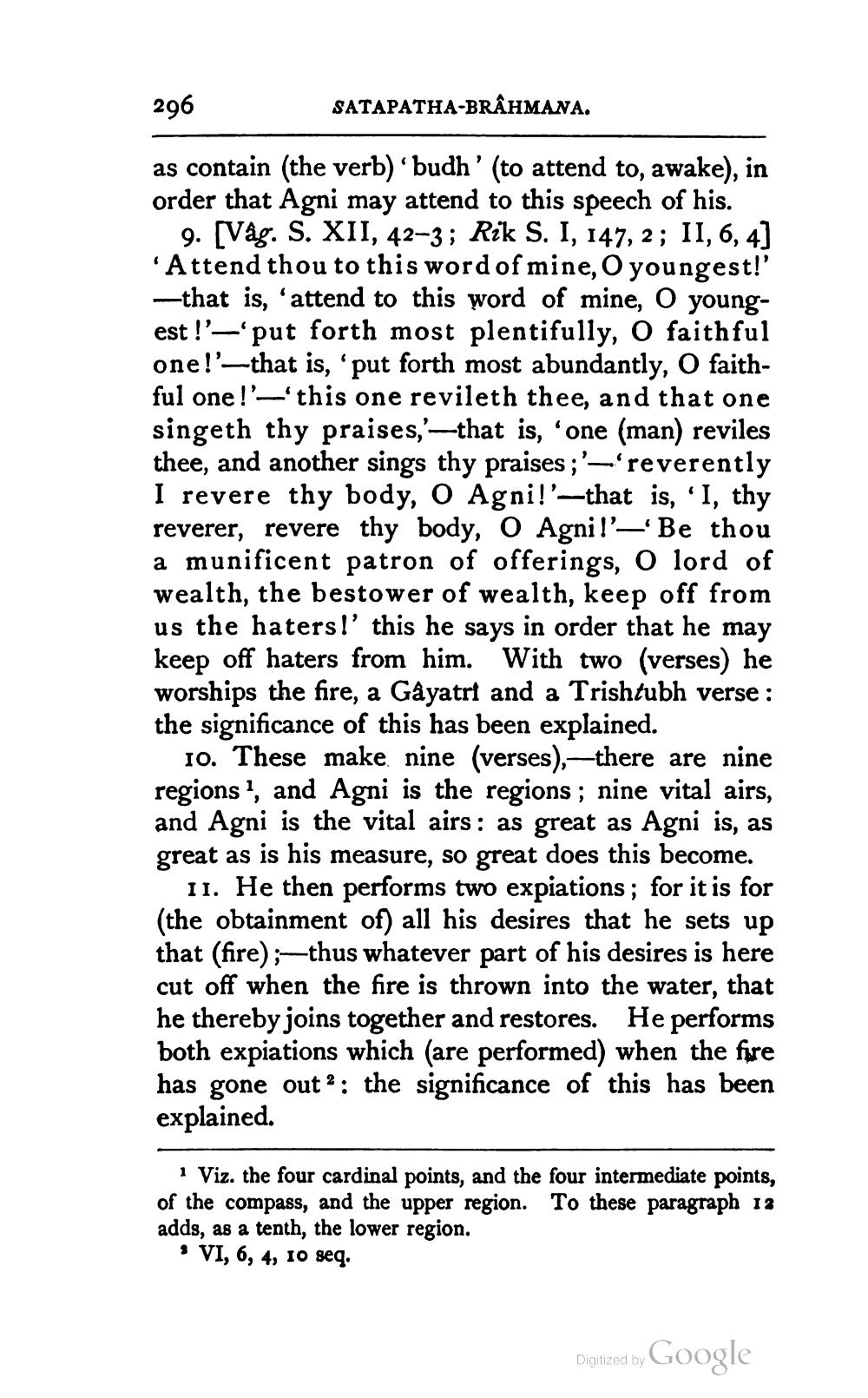________________
296
SATAPATHA-BRÂHMANA.
as contain (the verb)" budh' (to attend to, awake), in order that Agni may attend to this speech of his.
9. [Våg. S. XII, 42–3; Rik S. I, 147, 2; II, 6, 4] 'Attend thou to this word of mine, O youngest!' —that is, 'attend to this word of mine, O youngest !'-—'put forth most plentifully, O faithful one!'-that is, 'put forth most abundantly, O faithful one!'—'this one revileth thee, and that one singeth thy praises,'—that is, 'one (man) reviles thee, and another sings thy praises ; '-'reverently I revere thy body, O Agni!'--that is, 'I, thy reverer, revere thy body, O Agni!'—Be thou a munificent patron of offerings, O lord of wealth, the bestower of wealth, keep off from us the haters!' this he says in order that he may keep off haters from him. With two (verses) he worships the fire, a Gayatri and a Trishtubh verse : the significance of this has been explained.
10. These make, nine (verses),--there are nine regions !, and Agni is the regions ; nine vital airs, and Agni is the vital airs: as great as Agni is, as great as is his measure, so great does this become.
11. He then performs two expiations; for it is for (the obtainment of) all his desires that he sets up that (fire) ;-thus whatever part of his desires is here cut off when the fire is thrown into the water, that he thereby joins together and restores. He performs both expiations which (are performed) when the fire has gone out 2: the significance of this has been explained.
1 Viz. the four cardinal points, and the four intermediate points, of the compass, and the upper region. To these paragraph 13 adds, as a tenth, the lower region.
· VI, 6, 4, 10 seq.
Digitized by Google




